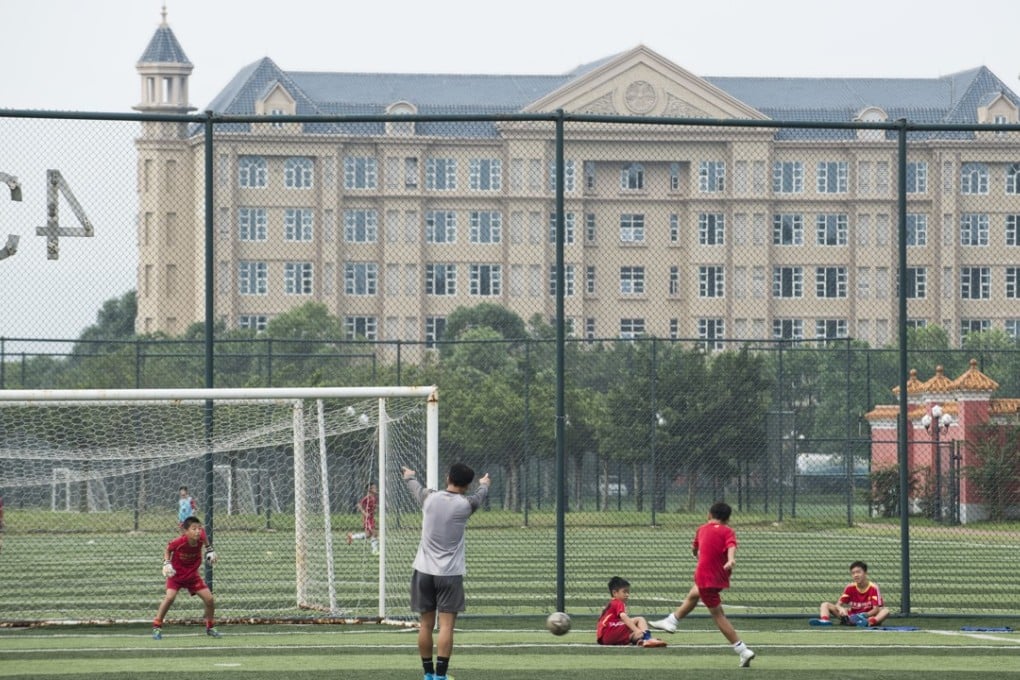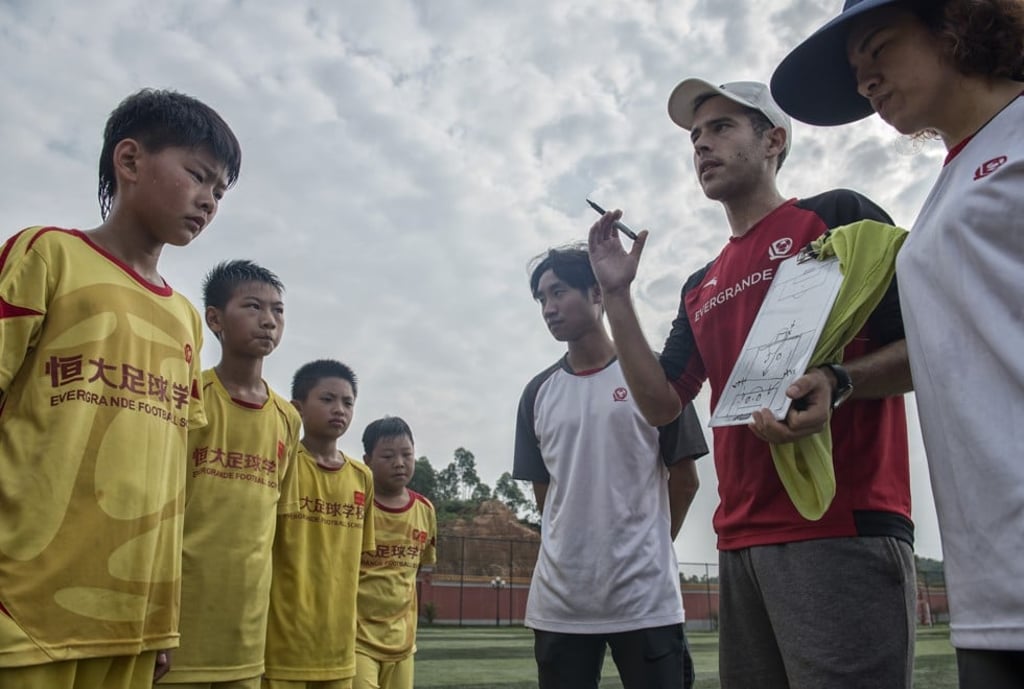Has the legacy of China’s one-child policy destroyed Xi Jinping’s World Cup dream?
Despite the country building world-class infrastructure and employing some of the best foreign coaches, China’s footballers have yet to become world beaters, with players born under the one-child policy lacking cooperation skills

It’s 8am and the temperature is already above 30 degree Celsius in Qingyuan, a prefecture-level city in the north of Guangdong province and home to the Evergrande Football School. Most of the 48 pitches at the world’s largest soccer academy are already in use. Children and teenagers in red and yellow kits stretch, run and kick balls. For the next 90 minutes, before regular school classes begin, they will sweat buckets.
“He shui,” Ibon Labaien reminds his charges, in broken Mandarin, every few minutes.
“They need to drink water constantly in this heat or risk passing out,” explains the 28-year-old Basque, one of 22 Spanish coaches that Real Madrid – Europe’s top football club – has chosen for an ambitious venture with property developer Evergrande Group. Labaien works alongside one of the academy’s 116 Chinese coaches, and communicates through an interpreter.

“The infrastructure [in Qingyuan] is amazing – comparable to that of Spain’s [La Liga] clubs,” says Labaien.
Chinese football is still very bad. Players lack technique and understanding of the game. I have to teach the basics over and over again, even with those already playing professionally
The school cost more than 1 billion yuan (US$156 million) to build and comprises two dozen chateau-style buildings, including a 21,000-square-metre student dormitory and four towers containing fully equipped apartments for the staff. An auditorium can hold more than 1,000 people and the main stadium has seats for more than 3,000.
